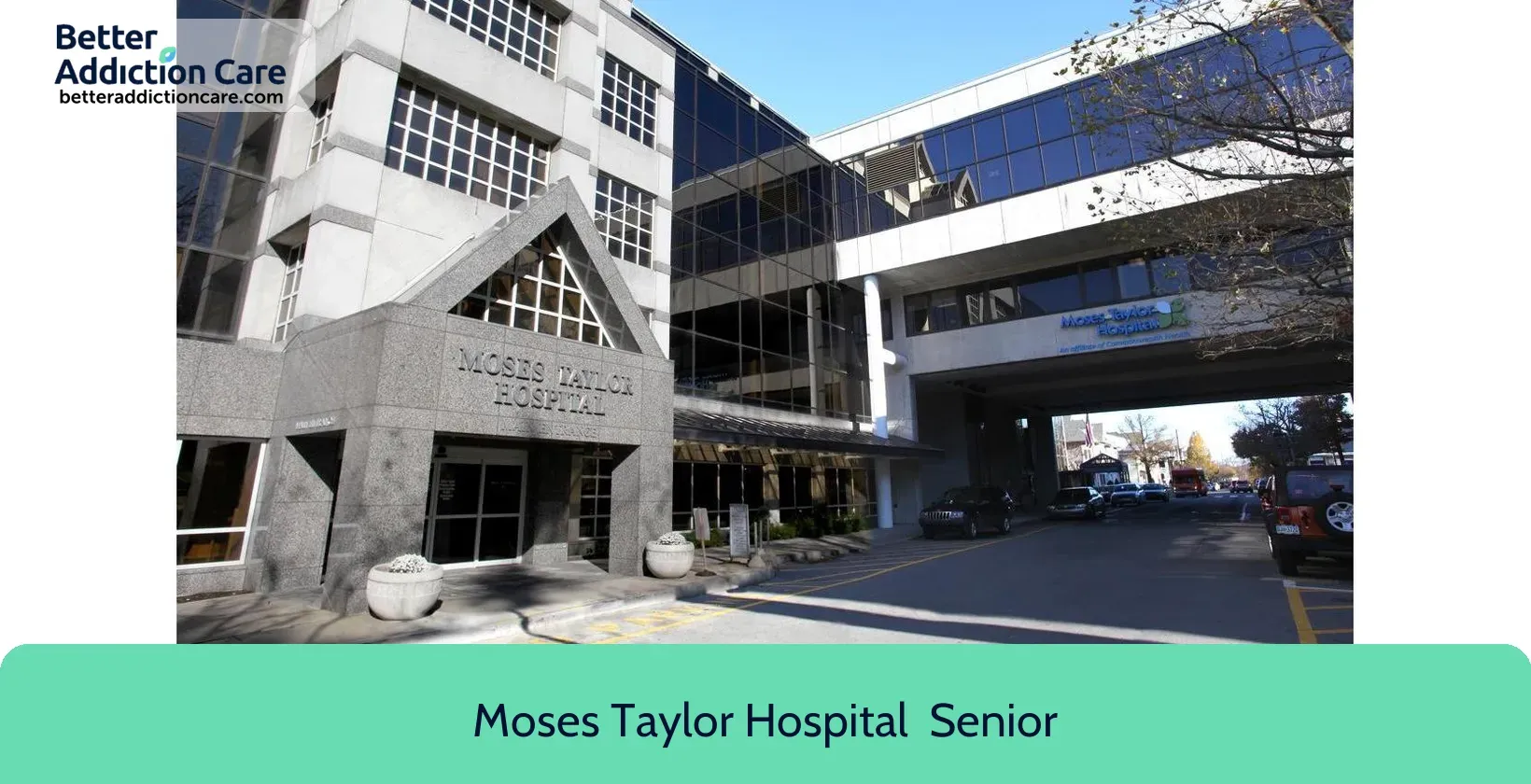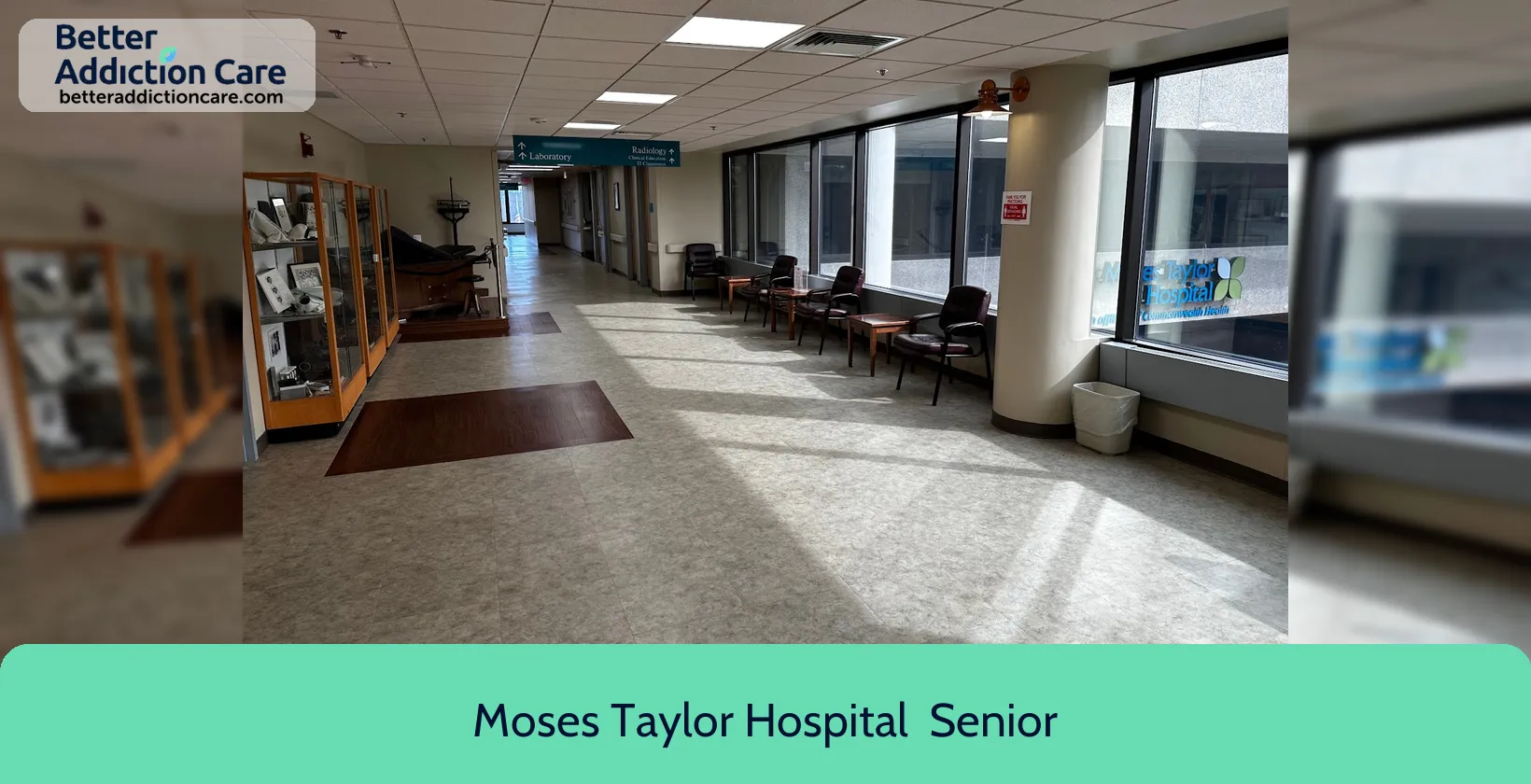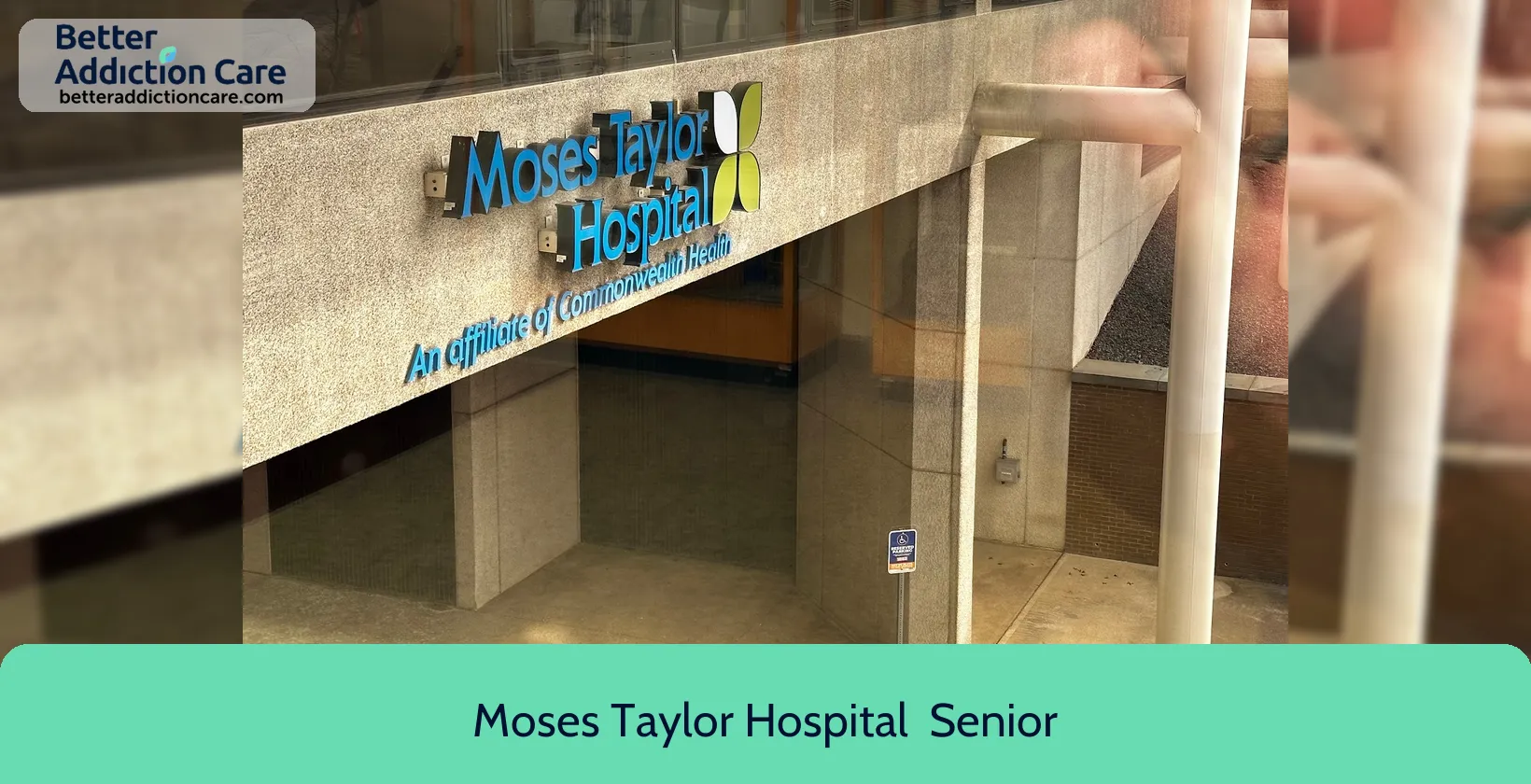Moses Taylor Hospital - Senior Mental Health
Overview
Moses Taylor Hospital - Senior Mental Health is a mental health treatment center for people seeking treatment near Lackawanna County. As part of their treatment modalities for recovery, Moses Taylor Hospital - Senior Mental Health provides group counseling, experiential therapy, and individual psychotherapy during treatment. Moses Taylor Hospital - Senior Mental Health is located in Scranton, Pennsylvania, accepting medicaid for treatment.
Moses Taylor Hospital - Senior Mental Health at a Glance
Payment Options
- Medicaid
- Private health insurance
- Cash or self-payment
- Medicare
- State-financed health insurance plan other than Medicaid
Assessments
- Comprehensive mental health assessment
- Comprehensive substance use assessment
- Screening for tobacco use
Age Groups
- Young adults
- Adults
- Seniors or older adults
- Seniors
Ancillary Services
- Diet and exercise counseling
- Family psychoeducation
- Integrated primary care services
Highlights About Moses Taylor Hospital - Senior Mental Health
6.95/10
With an overall rating of 6.95/10, this facility has following balanced range of services. Alcohol Rehabilitation: 8.00/10, Drug Rehab and Detox: 6.31/10, Insurance and Payments: 6.53/10, Treatment Options: 6.97/10.-
Alcohol Rehabilitation 8.00
-
Treatment Options 6.97
-
Insurance and Payments 6.53
-
Drug Rehab and Detox 6.31
Treatment At Moses Taylor Hospital - Senior Mental Health
Treatment Conditions
- Mental health treatment
- Alcoholism
- Opioid Addiction
- Substance use treatment
- Co-occurring Disorders
Care Levels
- Hospital inpatient detoxification
- Detoxification
- Outpatient
- Hospital inpatient treatment
- Hospital inpatient/24-hour hospital inpatient
Treatment Modalities
- Group counseling
- Experiential Therapy
- Individual psychotherapy
- Couples/family therapy
- Activity therapy
Ancillary Services
Languages
- Sign language services for the deaf and hard of hearing
- Spanish
Additional Services
- Pharmacotherapies administered during treatment
- HIV testing
Special Programs
- Persons 18 and older with serious mental illness (SMI)
- Persons with Alzheimers or dementia
Get Help Now
Common Questions About Moses Taylor Hospital - Senior Mental Health
Contact Information
Other Facilities in Scranton

6.62

7.11

7.06
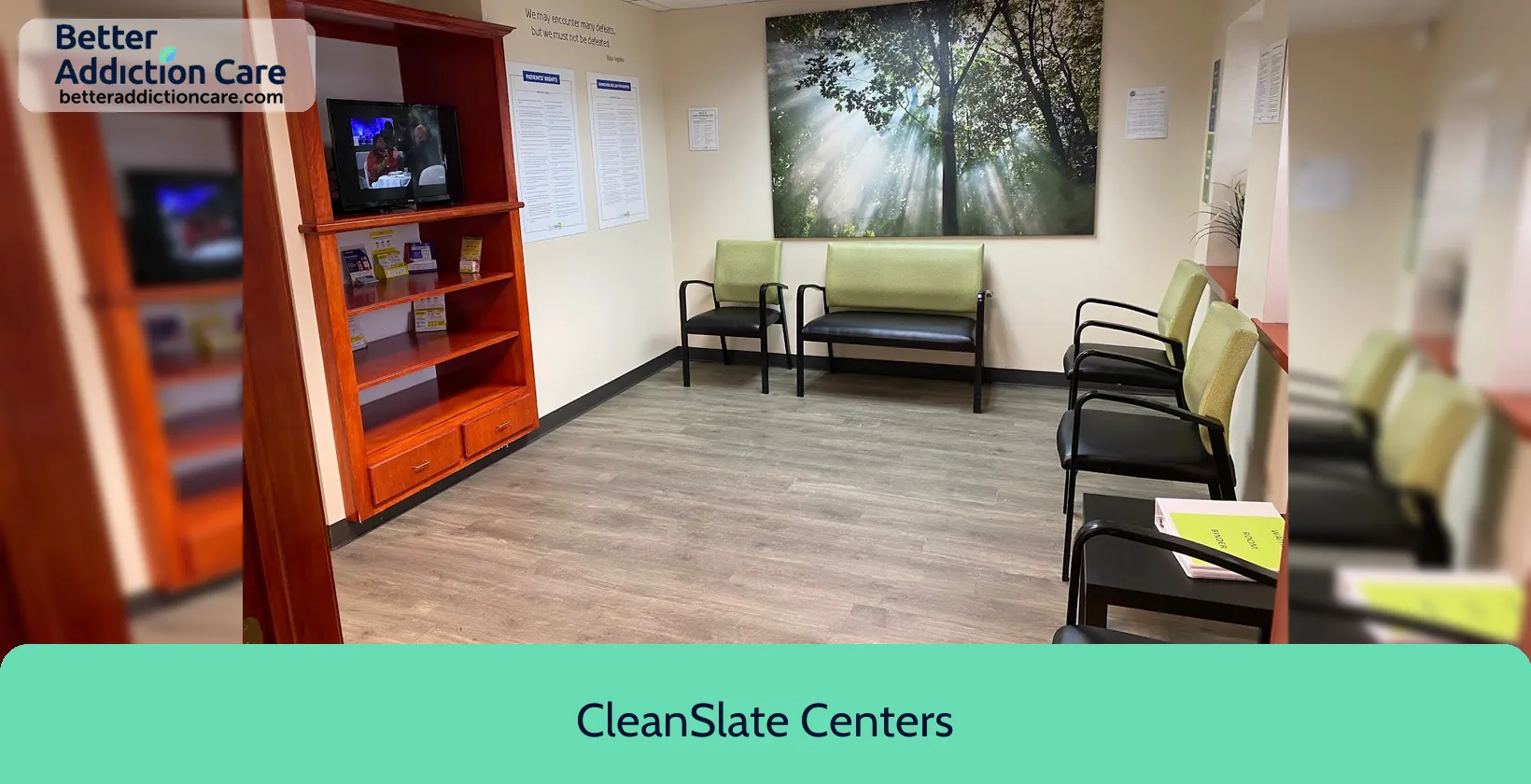
7.04
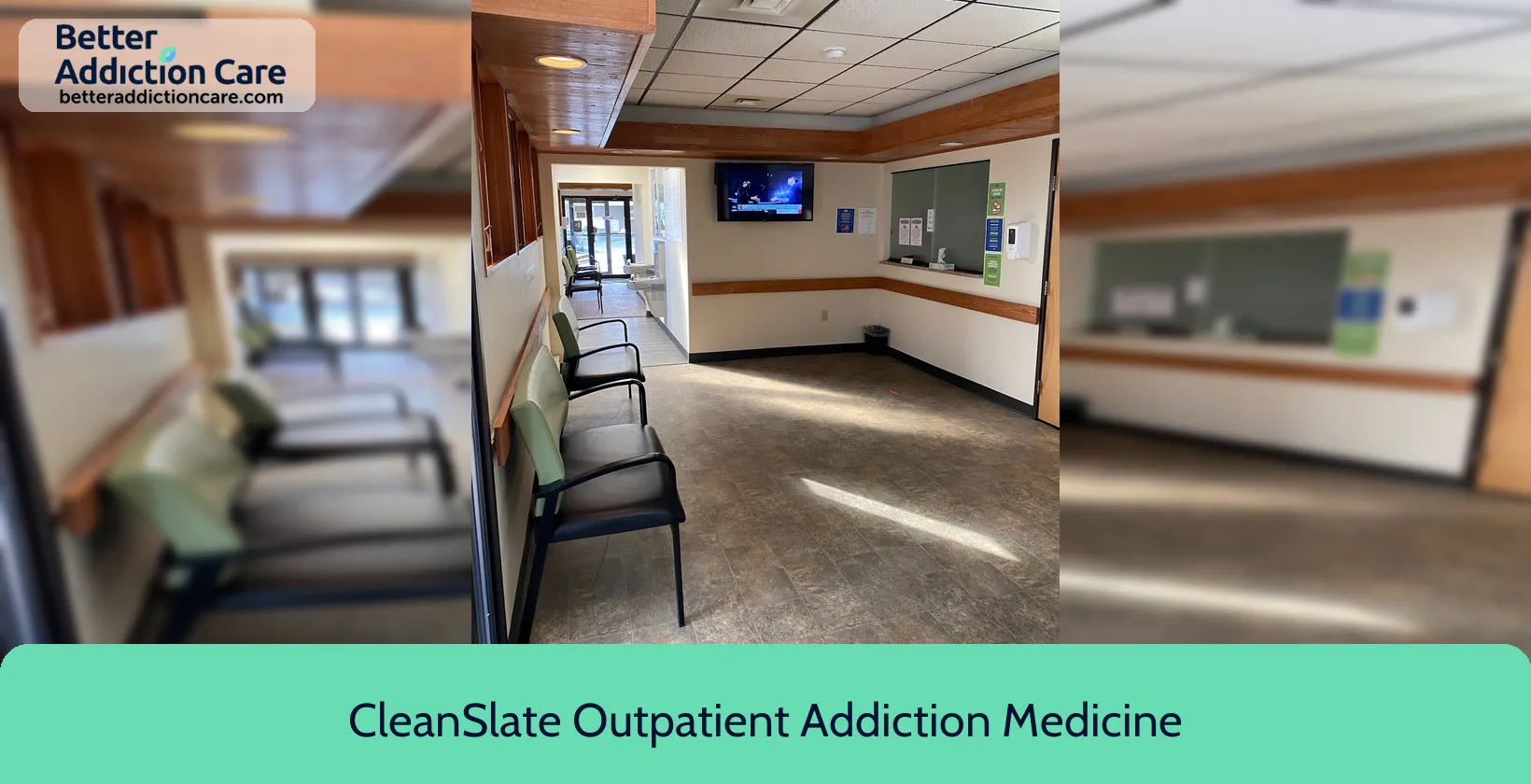
6.88
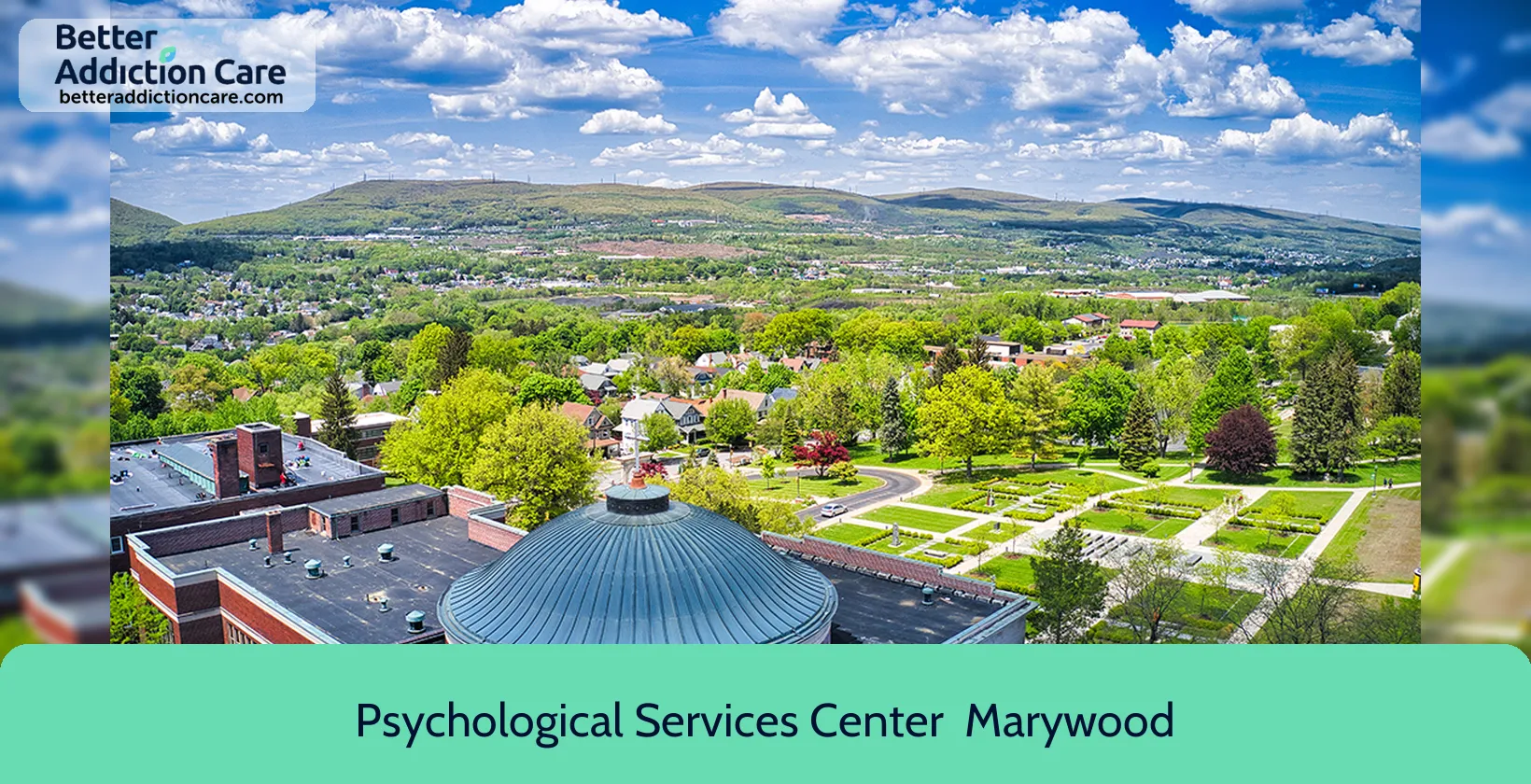
6.56
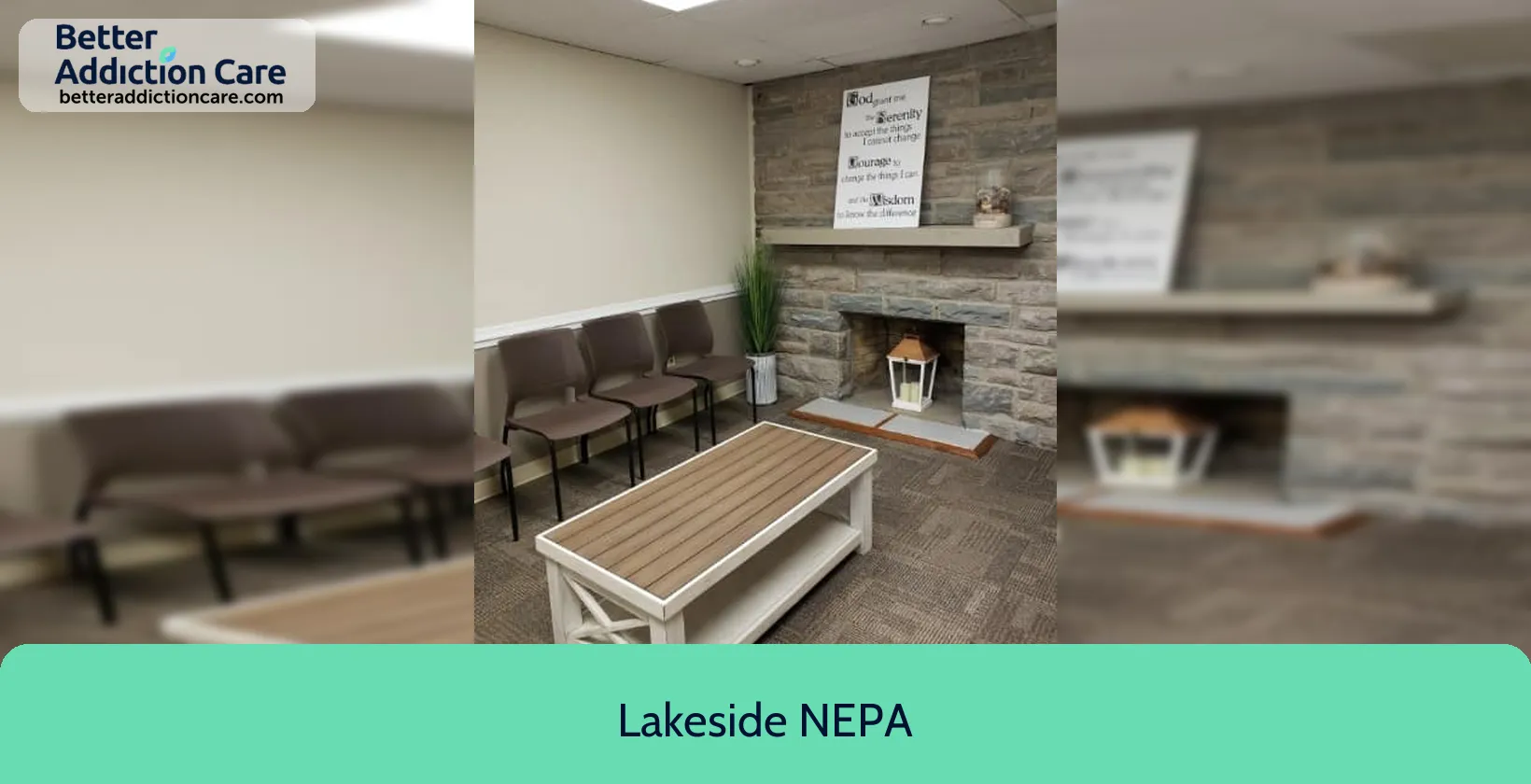
6.89

6.92
DISCLAIMER: The facility name, logo and brand are the property and registered trademarks of Drug and Alcohol Treatment Services - Outpatient Services, and are being used for identification and informational purposes only. Use of these names, logos and brands shall not imply endorsement. BetterAddictionCare.com is not affiliated with or sponsored by Drug and Alcohol Treatment Services - Outpatient Services.
